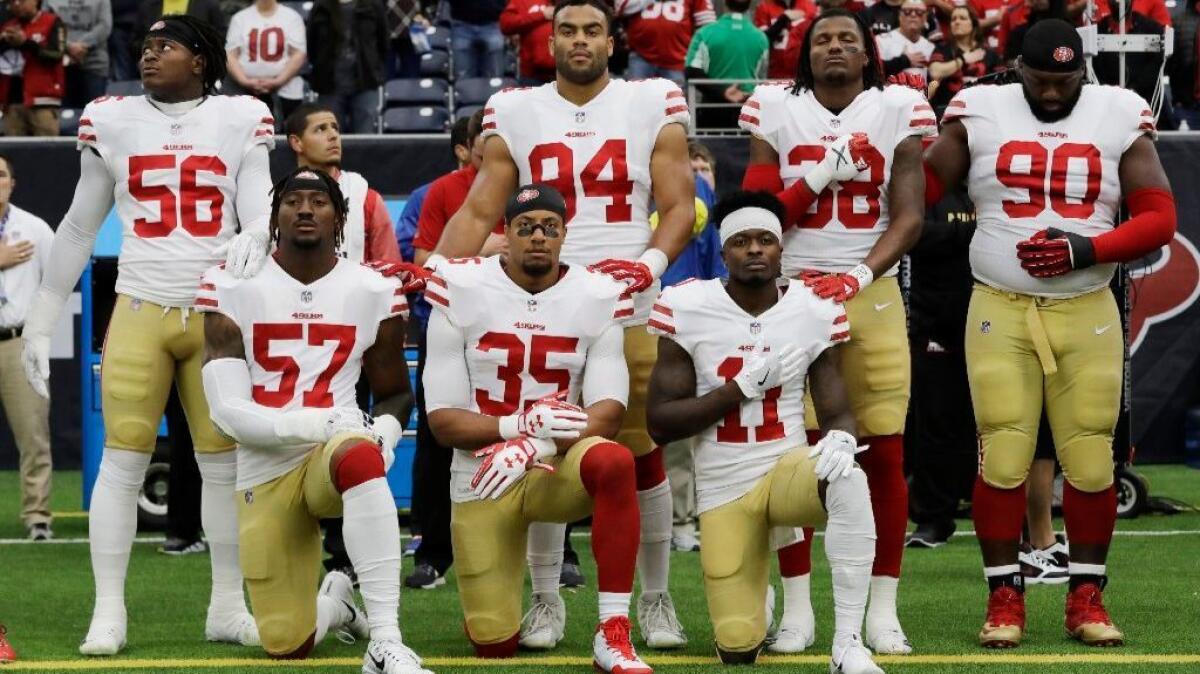California high school football player can’t be forced to stand for national anthem, court rules

An Imperial County high school football player must be allowed to kneel during the singing of the national anthem and can’t be ordered by his school to stand for the performances, a federal court has ruled.
The decision temporarily strikes down rules set by the San Pasqual Valley Unified School District that prohibited “kneeling, sitting or similar forms of political protest” at athletic events and required students and coaches to “stand and remove hats/helmets … during the playing or singing of the National Anthem,” according to the Dec. 21 ruling by the U.S. District Court for the Southern District of California.
The school district set the rules after students from a rival high school in neighboring Arizona yelled racial slurs at San Pasqual Valley High School students and threatened to force the football player at the center of the controversy to stand, the ruling said.
The player, identified in court records only as “V.A.” and described as Native American, was protesting racial injustice in the U.S. and emulating NFL players who have also knelt during the national anthem. The NFL players’ protest has sparked a national debate over whether the athletes are properly expressing their grievances or disrespecting veterans and the flag.
At a game played at Mayer High School in Spring Valley, Ariz., which is majority white, students were upset by the athlete’s gesture and yelled racial slurs at fans and players from San Pasqual Valley in Winterhaven, Calif., whose students are primarily Native American and Latino, according to Ira Gottlieb, an attorney with the Glendale-based firm Bush Gottlieb, which represented the football player. Mayer High students also sprayed a water bottle at San Pasqual Valley students, getting one cheerleader wet, according to the court’s ruling.
The incident drew concern from school district Superintendent Rauna Fox, who issued the new rules.
But the federal court granted a preliminary injunction stopping the school from implementing its rules, finding that they violated V.A.’s 1st Amendment right to political expression. Schools have the authority to curb speech only when the expressions threaten to disrupt a school’s educational mission, the ruling said.
Gottlieb said V.A.’s attorneys will now be seeking a permanent injunction.
“We are pleased with this outcome,” Katie Traverso, a Bush Gottlieb attorney who argued for the plaintiff in court, said in a news release. “Students like our client who conscientiously carry their values and ideals with them, cannot be silenced or directed on what to say or not say by their school in this manner.”
It was unclear whether the school district would appeal. School district officials could not be reached for comment on Friday.
More to Read
Sign up for Essential California
The most important California stories and recommendations in your inbox every morning.
You may occasionally receive promotional content from the Los Angeles Times.











